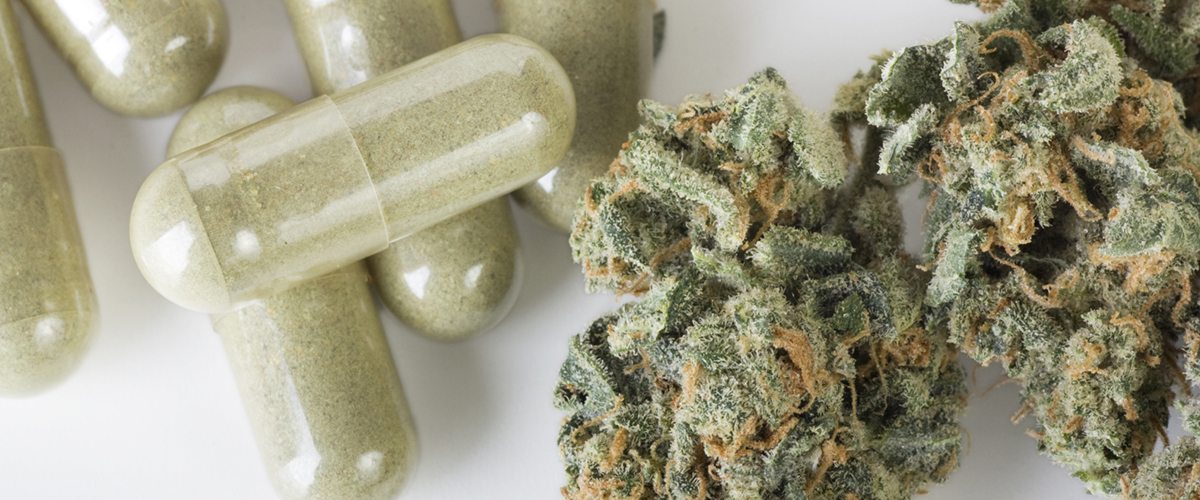[vc_row][vc_column][vc_column_text]
Findings in a new study suggest that access to legal medical marijuana reduces opioid intake.
The passing of medical marijuana laws reduced the number of drivers in fatal accidents that tested positive for opioids, found a new study published in the American Journal of Public Health. Researchers from Columbia University’s Mailman School of Public Health analyzed federal crash data in 18 states from 1999 to 2013. The states that had passed medical marijuana legislation during the 14-year time period saw a reduction in fatal car accidents that involved opioid use, compared to states that didn’t implement medicinal cannabis laws.
“We would expect the adverse consequences of opioid use to decrease over time in states where medical marijuana use is legal, as individuals substitute marijuana for opioids in the treatment of severe or chronic pain,” said June H. Kim, the study’s lead author, in a press release.
Traditionally prescribed by physicians to treat acute and chronic pain, opioid pain medications like Vicodin, Codeine and OxyContin carry a high risk for abuse, addiction and overdose. Even patients who follow the recommended dosage will eventually need to increase their intake to get the same level of relief. The U.S. Department of Health and Human Services says that everyday 44 Americans die as a result of opioid overdose.
Among the 68,394 deceased drivers the study examined, approximately 42 percent were fatally injured in states that had medical marijuana laws. Twenty-five percent of the drivers died in states before an operational law went into effect and 33 percent died in states that had no medical marijuana program.
The results of the new study suggest that, “in states with medical marijuana laws, fewer individuals are using opioids,” Kim wrote.[/vc_column_text][/vc_column][/vc_row][vc_row][vc_column][vc_single_image image=”17843″ img_size=”1200×250″ onclick=”custom_link” link=”https://www.medicalmarijuanainc.com/evidence-suggests-cannabis-could-help-fix-opioid-crisis/”][/vc_column][/vc_row][vc_row][vc_column][vc_column_text]After a medical marijuana law was passed, drivers aged 21 to 40 were half as likely to test positive for opioids compared to drivers of the same age group in states before laws were passed. An earlier study found that this age group is the most common to use medical marijuana.
“The trend may have been particularly strong among the age group surveyed because minimum age requirements restrict access to medical marijuana to patients age 21 and older, and most medical marijuana patients are younger than 45,” noted Kim.
The study’s results are the latest in a growing body of evidence that suggest substituting cannabis for prescription opioids for the treatment of chronic pain is beneficial. Earlier this year, a research article published in The Journal of Pain found that patients recommended medical marijuana to help manage chronic pain reduced their opioid intake by 64 percent. Similarly, a team of researchers in Israel found that medical cannabis significantly reduced opioid use and simultaneously improved pain and functional outcome. Findings in another study actually suggest that opioids could be making chronic pain worse.
Citing concerns over overdose, dependence and addiction risks, a group of researchers published an editorial in the Journal of the Canadian Public Health Association earlier this year, urging physicians to treat chronic pain patients with cannabis rather than opioids. Senator Elizabeth Warren wrote a publicized letter to the Director of the Centers for Disease Control and Prevention to express concern over the nationwide opioid crisis and requested the director to look into how medicinal cannabis could potentially solve the problem. No overdose death from marijuana has ever been recorded, according to the Drug Enforcement Administration.
As of today, 25 states and the District of Columbia have established medical marijuana legislation. Four states — Arkansas, Florida, Montana and North Dakota — will have medicinal cannabis initiatives on this November’s ballot. Five states will be voting on adult use marijuana measures.
“As states with these laws move toward legalizing marijuana more broadly for recreational purposes, future studies are needed to assess the impact these laws may have on opioid use,” noted Kim.
Learn more about the medical marijuana laws throughout the United States on our education page.[/vc_column_text][/vc_column][/vc_row]






